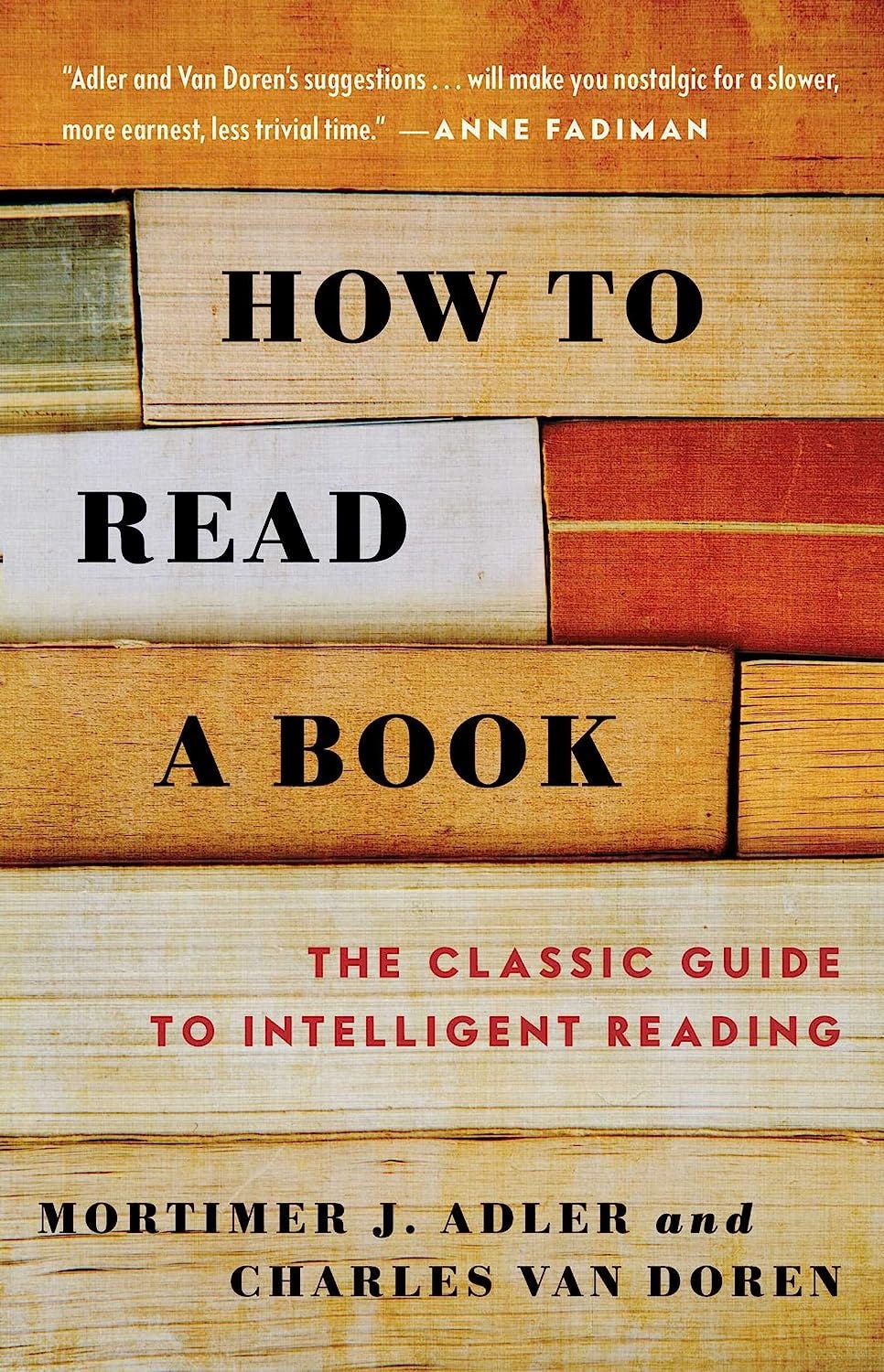How to Read a Book, Chapter 2
Chapter 2: The Levels of Reading
Adler and Van Doren begin with the very sensible observation that readers' goals determine the ways they read. I completely agree; in fact ignoring the reader’s goal was one of the objections I mentioned to the way they approached the topic in the previous chapter. However, even immediately after saying this, they seem to backslide into a hierarchical description that seems laden with value judgement.
The first level they describe is elementary reading, which they equate with children. Understanding what the words mean. The next level is much more interesting to me. They call this "Inspectional Reading", which they describe as "skimming systematically." This is akin to what I call reading like a grad student, and I'll compare it more thoroughly when they return to it in chapter four. The next level is analytical reading, which is the stage at which they say readers "work at it until the book becomes [their] own." This is the stage I imagine as the transition from note-taking to note-making, and I'll return to this, since they're going to spend a lot of part two on analytical reading.
The authors once again make a distinction between reading for information and reading for understanding. It struck me this time that it might be good to insert a level 2.5 into their scheme, which would be about mining a book for information. Often I don't care to be persuaded or deeply accept and understand an author's perspective, but I still value the information they assemble to support their narrative or argument. This is something that happens quite a bit for me, where I gain lots of really valuable historical background and data from articles or monographs whose interpretation I am never going to buy. It's really not so much about "understanding", as the authors put it. I think the way they're developing this idea, understanding means acquiescence. After all, if I'm learning from my "better", isn't it assumed that as soon as I fully understand their point, that they will have convinced me and I will have become enlightened?
Sorry, I don't think that's the way it works for me. Maybe it once did. But the Kantian aufklärung seems to nullify that dynamic, doesn't it? When we release ourselves from our "self-imposed nonage"?
The highest level of reading described in this chapter is "syntopical", which may be something like what I was just describing. I assume they will say more about it later in the book, but for now the authors describe it as comparative and aimed at questions an "an analysis of the subject that may not be in any of the books" (their emphasis). This strikes me as the type of reading Niklas Luhmann described in his articles about zettelkasten. He talked about looking for clues to his own mysteries in texts, not trying to understand the totality of the author's. This is both more and less, I think, than what Adler and Van Doren are talking about when they describe analytical reading. And ironically, I do think there's value to reading some texts very closely and squeezing out every drop of what the author put into it. I don't do it all the time, but sometimes, if I trust an author and really want to appreciate their journey rather than collect material for mine, that's a good way to go.



There are hints here of what Bob Doto was writing about recently with respect to literary theory development, lots of which wouldn't have been seen/known by Adler/Van Doren in 1972. You might appreciate the ideas in intertextuality and rhizomatic philosophy he touches on. There are also hints of connections to Whitney Trettien's work in Cut/Copy/Paste which I'm reminded of as well.
Doto, Bob. “Inspired Destruction: How a Zettelkasten Explodes Thoughts (So You Can Have New Ones).” Writing by Bob Doto (blog), September 13, 2023. https://writing.bobdoto.computer/inspired-destruction-how-a-zettelkasten-explodes-thoughts-so-you-can-have-newish-ones/.
Trettien, Whitney. Cut/Copy/Paste: Fragments from the History of Bookwork. University of Minnesota Press, 2021. https://manifold.umn.edu/projects/cut-copy-paste.